When I wrote The Rise of the Nones in 2014, it was in many ways a warning of a coming cultural tsunami. I was having to make the case that there actually was a rise in this particular religious demographic—and that it was going to matter.
Ten years later, the wave of the nones has clearly crashed upon our spiritual shores.
According to a new report from Pew Research Center, those who now describe themselves as atheists, agnostics or “nothing in particular” when asked about their religion constitute about 28% of all U.S. adults.
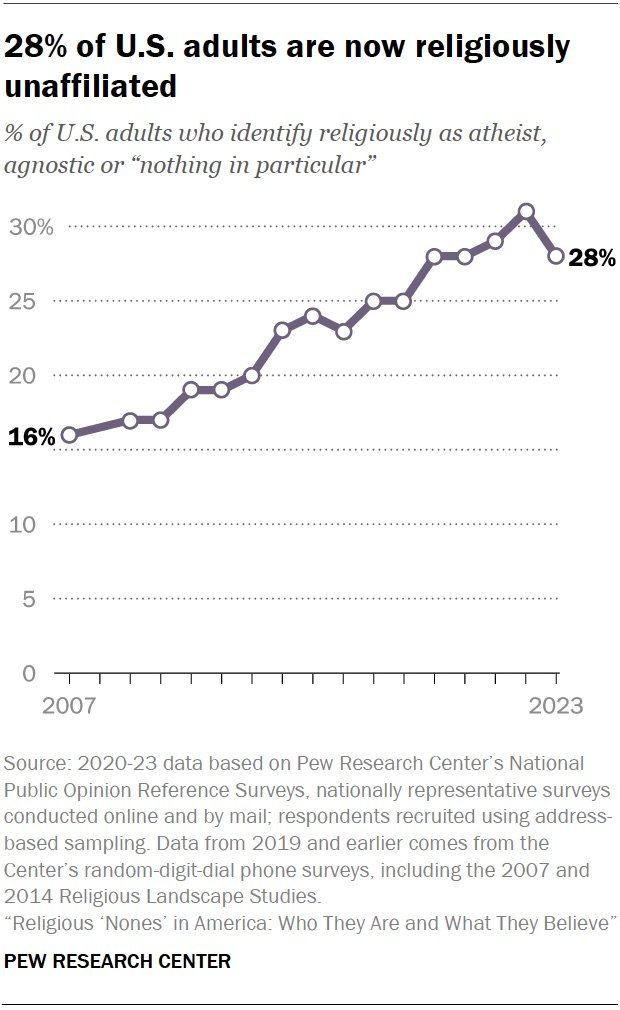
So who are they? Let’s catch up on the latest research through five important headlines.
1. They are now the largest religious cohort in America.
At 28% of U.S. adults, they are larger than evangelical Protestants (24%) as well as Catholics (23%). To put their rise into perspective, in 2007 they tallied only 16% of Americans. In the 1980s, they would have only made up around 5% of the population.
2. Most are not atheists.
This surprises people. While it is true that few go to religious services with any regularity, most “nones” believe in God or some other higher power. They consider themselves spiritual. But to be sure, if they believe in God, they will say it is not the God of the Bible.
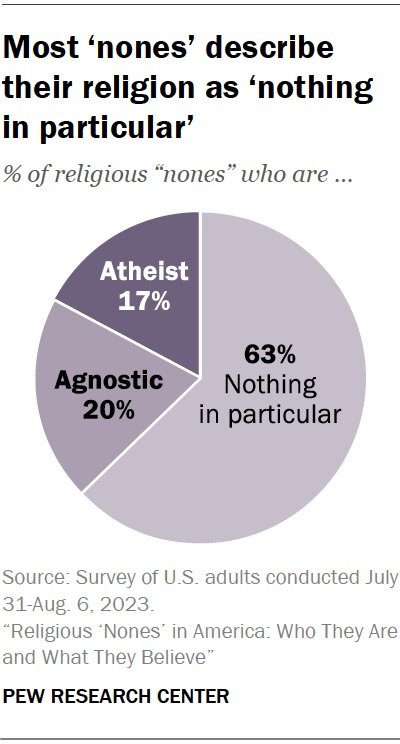
3. They are not uniformly anti-religious.
Yes, most would tell you that religion does some harm, but there are also many who think it does some good. However, when asked why they are not religious, two-thirds of “nones” say they question a lot of religious teachings (60%) or don’t like religious organizations (47%). In short, they are skeptical of faith and skeptical of those who embrace faith.
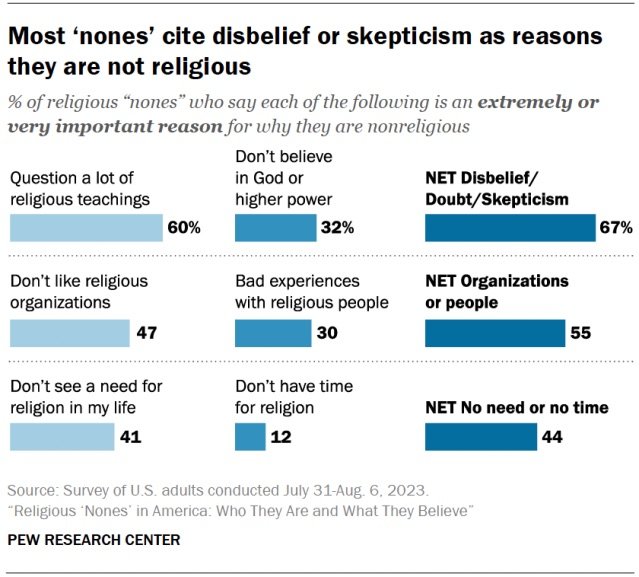
4. Science is not their god.
Most “nones” reject the idea that science can explain everything. However, they express more positive views of science than religiously affiliated Americans do. On a sidenote, the largest group of “nones” – the “nothing in particular” – tend to have lower levels of educational attainment than religiously affiliated U.S. adults.
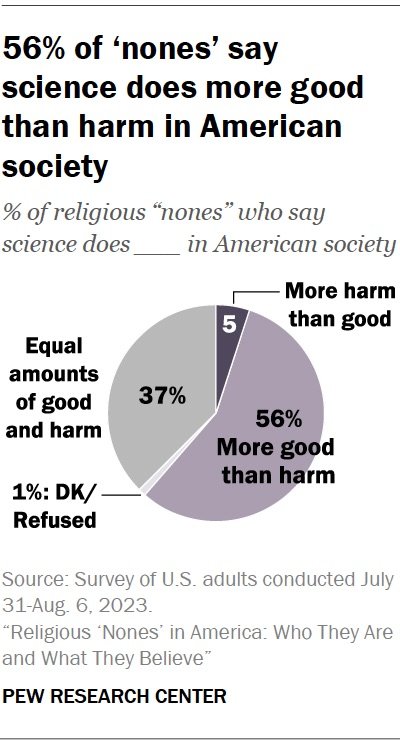
5. They are socially disengaged.
“Nones” tend to vote less often, do less volunteer work in their communities, and follow public affairs at lower rates than religiously affiliated people do. However, when you separate atheists and agnostics from those who are “nothing in particular,” atheists and agnostics participate in civil life at rates matching or exceeding religiously affiliated people. But social apathy can still be made a defining mark of the “nones,” as atheists and agnostics only constitute 37% of the “nones,” while an overwhelming 63% are “nothing in particular.” Having said that, the “nones” are consistently among the most liberal and Democratic constituencies in the United States.
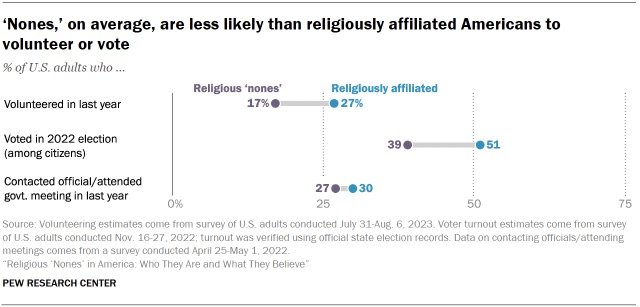
In truth, not much has changed from my initial research and the characterization I gave the “nones” 10 years ago, much less what was outlined in that book as to how best to reach them.
What has changed is their story. They are not rising,
… they have risen.
Read more from James Emery White »
This article originally appeared on ChurchAndCulture.org.
Charts and graphs courtesy of Pew Research

